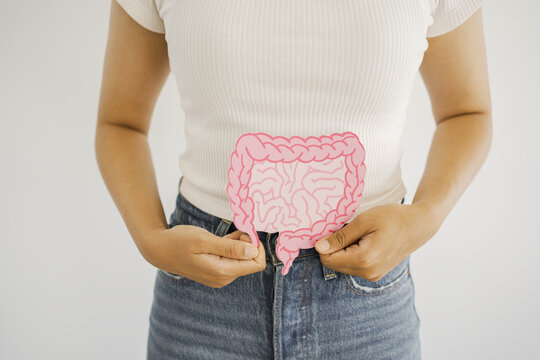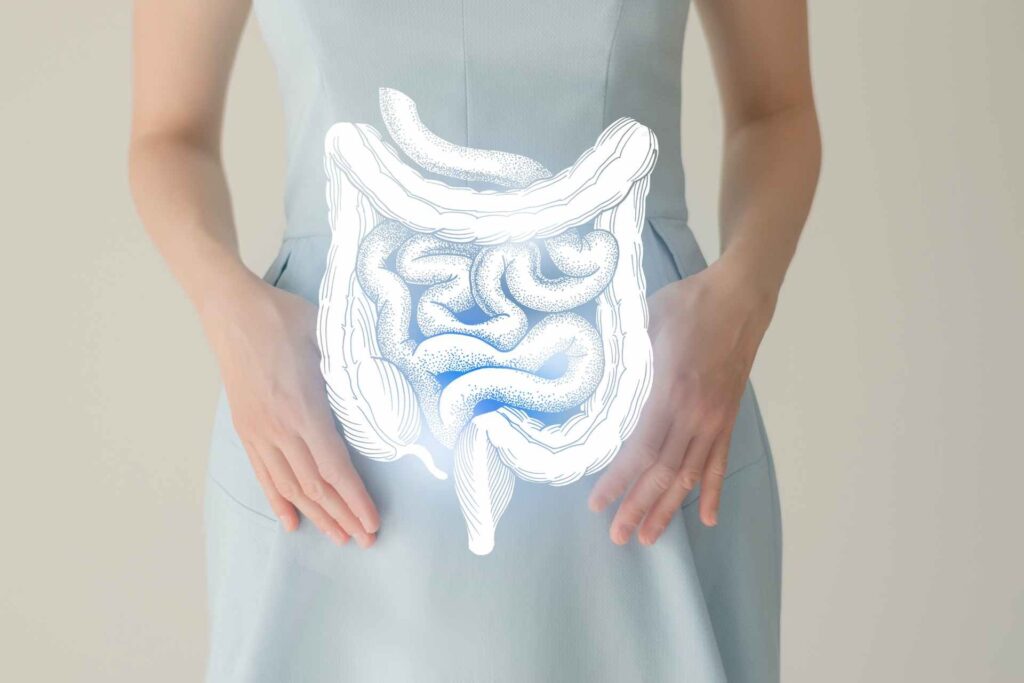The human gut is home to trillions of microorganisms, collectively known as the gut microbiota. These microbes play a critical role in digestion, immunity, and overall health. However, when this delicate ecosystem is disrupted, a condition known as dysbiosis can occur, leading to various health issues. Dysbiosis has been linked to digestive disorders, chronic diseases, and even mental health problems. Understanding what causes dysbiosis and how to restore balance is essential for maintaining optimal gut health and overall well-being.
The Gut Microbiota: A Delicate Balance
Composition of the Gut Microbiota
The gut microbiota comprises diverse microbial species, including bacteria, viruses, fungi, and archaea. The primary bacterial groups in a healthy gut include:
- Firmicutes: Aid in breaking down dietary fiber and producing short-chain fatty acids (SCFAs).
- Bacteroidetes: Play a role in carbohydrate metabolism.
- Actinobacteria: Include beneficial strains like Bifidobacterium, which support digestion.
- Proteobacteria: A small population is normal, but an overgrowth can indicate dysbiosis.
Each person’s microbiota is unique, influenced by genetics, diet, environment, and lifestyle.
Functions of a Healthy Gut Microbiota
- Digestion and Nutrient Absorption: Gut microbes break down complex carbohydrates and produce SCFAs like butyrate, which have anti-inflammatory effects.
- Immune Regulation: The gut microbiota trains the immune system to differentiate between harmful pathogens and harmless antigens.
- Maintaining Gut Barrier Integrity: Healthy gut microbes help produce mucins and tight junction proteins that prevent “leaky gut syndrome.”
- Systemic Interaction: The gut communicates with other systems, including the brain (gut-brain axis) and the skin (gut-skin axis).
Dysbiosis: Causes and Types
Causes of Dysbiosis
- Dietary Factors:
- Diets low in fiber and high in processed foods can disrupt microbial diversity.
- Artificial sweeteners and high sugar intake negatively affect beneficial bacteria.
- Antibiotic Use:
- Broad-spectrum antibiotics can reduce microbial diversity, sometimes leading to long-term imbalance.
- Lifestyle Factors:
- Chronic stress, poor sleep, and sedentary habits negatively impact gut health.
- Environmental Exposures:
- Toxins, pollutants, and chemicals can harm the gut microbiota.
- Infections and Pathogens:
- Gastrointestinal infections can disrupt microbial balance and trigger dysbiosis.
Types of Dysbiosis
- Loss of Beneficial Microbes: Reduction in beneficial strains like Lactobacillus and Bifidobacterium.
- Overgrowth of Harmful Microbes: Pathogenic strains, such as Clostridium difficile, dominate.
- Reduced Diversity: A lack of microbial variety is associated with chronic diseases.
Impact of Dysbiosis on Health

Digestive Health
Dysbiosis is linked to common digestive disorders, including:
- Irritable Bowel Syndrome (IBS): Symptoms like bloating, diarrhea, and constipation.
- Inflammatory Bowel Diseases (IBD): Reduced microbial diversity exacerbates Crohn’s disease and ulcerative colitis.
Metabolic Disorders
- Dysbiosis affects energy metabolism, contributing to obesity and insulin resistance.
- It is implicated in the development of type 2 diabetes.
Immune System Dysregulation
- Dysbiosis has been linked to autoimmune diseases, including rheumatoid arthritis.
- Reduced microbial diversity increases susceptibility to infections.
The Gut-Brain Axis
- Dysbiosis influences mental health conditions, such as anxiety, depression, and brain fog.
- Emerging research links gut imbalance to neurodegenerative diseases like Alzheimer’s and Parkinson’s.
Chronic Inflammation
- Dysbiosis-induced inflammation contributes to systemic conditions like cardiovascular diseases and cancer.
Diagnosing Dysbiosis
Symptoms and Clinical Signs
Common symptoms of dysbiosis include:
- Digestive issues like bloating and irregular bowel movements.
- Fatigue and brain fog.
- Food intolerances and skin conditions like eczema.
Diagnostic Tools
- Stool Testing: Analyzing microbial diversity and detecting pathogens.
- Metabolite Testing: Assessing levels of SCFAs and other microbial byproducts.
- Emerging Technologies: Advanced microbiome sequencing for comprehensive analysis.
Restoring Gut Health: Strategies for Balance
Dietary Interventions
- Prebiotic Foods: Fiber-rich foods like garlic, onions, and bananas support beneficial bacteria.
- Probiotic Foods: Fermented foods like yogurt, kimchi, and sauerkraut enhance microbial diversity.
- Elimination Diets: Identifying and removing trigger foods to alleviate symptoms.
- Avoid Harmful Foods: Reducing artificial sweeteners, refined sugars, and processed foods.
Lifestyle Modifications
- Exercise: Regular physical activity boosts microbial diversity.
- Stress Management: Practices like meditation and yoga reduce inflammation and support gut health.
- Sleep Hygiene: Quality sleep is crucial for microbiome stability.
Targeted Therapies
- Probiotics: Supplementing with strains like Lactobacillus and Bifidobacterium.
- Prebiotics: Supporting beneficial bacteria growth with non-digestible fibers.
- Synbiotics: Combining probiotics and prebiotics for synergistic effects.
- Fecal Microbiota Transplantation (FMT): Effective for severe dysbiosis, such as recurrent Clostridioides difficile infections.
Reducing Antibiotic Overuse
- Limiting unnecessary antibiotic prescriptions to preserve microbial diversity.
- Educating patients on the importance of responsible antibiotic use.
Emerging Therapies
- Microbiome Modulation: Drugs targeting specific microbial pathways.
- Precision Medicine: Using microbiome profiling for personalized treatments.
Preventing Dysbiosis
Balanced Diet for Microbial Diversity
- Incorporate a variety of plant-based foods and reduce processed food intake.
Mindful Use of Medications
- Use antibiotics judiciously and explore alternatives to gut-disrupting drugs.
Healthy Lifestyle Habits
- Regular exercise, stress management, and adequate sleep are key to maintaining gut balance.
Common Myths and Misconceptions
- Myth: All bacteria in the gut are harmful. Fact: Most gut bacteria are beneficial and essential for health.
- Myth: Probiotics alone can fix dysbiosis. Fact: Probiotics are part of a comprehensive approach to restoring gut health.
- Myth: Dysbiosis only affects digestion. Fact: Dysbiosis impacts immunity, mental health, and systemic inflammation.
Future Directions in Dysbiosis Research
Advances in Microbiome Sequencing
- Next-generation sequencing enhances understanding of microbial ecosystems.
Microbiome and Personalized Medicine
- Integrating microbiome data with genomics for tailored treatments.
Expanding Applications of FMT
- Researching FMT for metabolic and autoimmune disorders.
Exploring Non-Bacterial Components
- Investigating the roles of gut viruses, fungi, and archaea in health and disease.
Conclusion
Maintaining a balanced gut microbiota is essential for overall health. Dysbiosis disrupts this balance, leading to a cascade of health problems affecting digestion, immunity, metabolism, and mental well-being. Through dietary changes, lifestyle modifications, and emerging therapies, we can restore balance and unlock the full potential of a healthy gut. Continued research in microbiome science promises new opportunities for prevention, diagnosis, and treatment of dysbiosis-related conditions.


